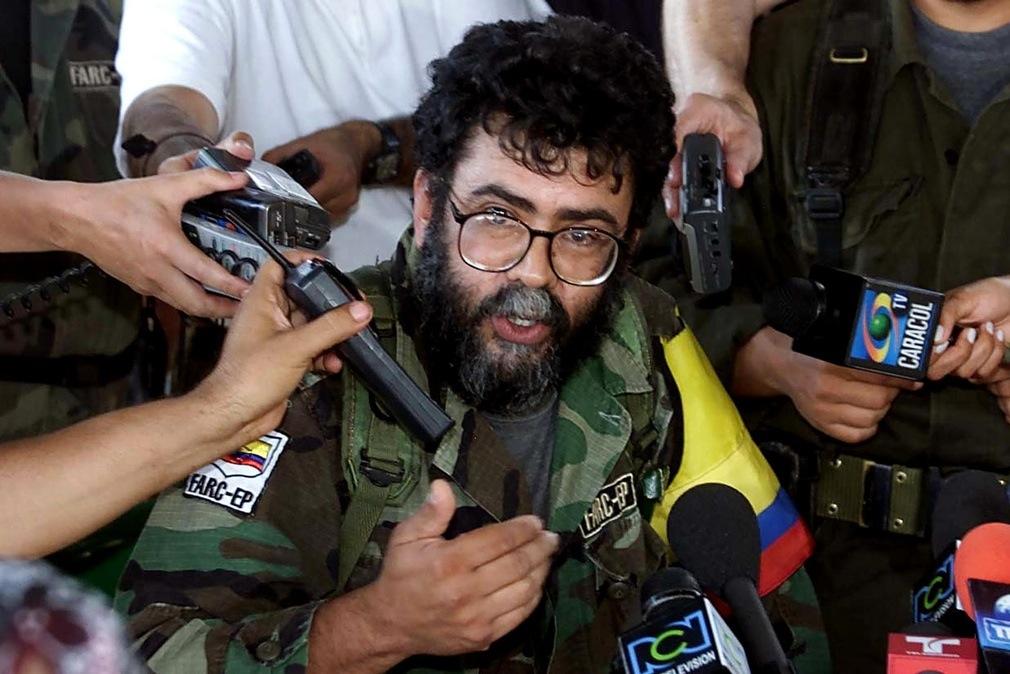Colombia’s new hardline rebel leader takes up the fight
Alfonso Cano, the FARC leader killed over the weekend. Will Timochenko follow in his steps?
BOGOTA — The Revolutionary Armed Forces of Colombia, the guerilla group known as the FARC, chose a military hardliner as its new commander this week, in what could be a blow to a peaceful resolution to Colombia’s conflict.
It could also spell the beginning of the end for the FARC.
Rodrigo Loño Echeverry, 52, known as Timochenko, was chosen after the death this weekend of the group’s commander, Alfonso Cano, who was killed in a government bombardment.
Read more: Cocaine crackdown
The government, who has been fighting the FARC for decades, called Cano’s death a serious blow to the group. Cano was a charismatic leader who skillfully united factions of the FARC who disagreed on whether to pursue a military or political strategy in dealing with the government.
At issue is the tentative discussions about negotiations that Cano allegedly had begun with the government before his death, and what some analysts believed was a rare chance for peace. Colombian officials have since said they would be willing to continue negotiations with the FARC if the group acted in good faith. Most analysts say that the government would also need to show that it is willing to implement some economic reforms the group had demanded in the past.
It’s still unclear whether Timochenko, who analysts believe may be hiding in neighboring Venezuela, has interest in pursuing that path, or remaining at war. But his background suggests that he’s likely to continue a militaristic approach.
Read more: 'Blood roses' in Colombia
Timochenko is one of the FARC’s longest running commanders. A medical student when he joined the rebels in 1982, he has studied politics and warfare in the Soviet Union and Cuba. Since then, he has risen to lead the head of the group’s intelligence operations.
Colombia's attorney general has issued 117 arrest warrants for Timochenko on charges of kidnapping, murder, rebellion and terrorism. The United States has offered $5 million for information leading to his capture.
The FARC has been battling the government since the 1960s, when it was founded to fight for the rights of Colombia’s poor. Since then, however, it has strayed from its original ideology, working with drug-traffickers to fund its operations, kidnapping civilians and launching violent attacks against the government. The shift has also sapped public support for the FARC.
Since 2008, the Colombian military has intensified its military campaign against the group. So far, it has killed four out of seven top leaders. Yet the government hasn’t been able to eradicate the rebels.
Miguel Ortiga, a researcher at the Foundation for Ideas Towards Peace, said that that Timochenko was less likely to negotiate than his predecessor. He also would have less of an ability to unite the group.
That could lead the FARC to splinter into smaller groups who might align with criminal gangs, raising the potential for clashes between these rivals and creating a greater threat to civilians.
"This is very dangerous for Colombia in the long term," Ortiga said. "The criminal groups have better weapons and training. This, mixed with a desire to fight the government and lack of leadership, could be a bomb."
It would also almost certainly render negotiations moot. Either way, buoyed by Cano’s death, the government seems little interested in discussions now.
“Think about it,” said President Juan Manuel Santos, in a public address to Timochenko. “You have been defeated politically, more than 95 percent of the population rejects the FARC. Your military is increasingly weak.
“The use of weapons and the path of violence will not lead to any win for you. Timochenko needs to reflect, or he will suffer the same fate as Alfonso Cano.”
Interior Minister German Vargas Lleras has already announced that Timochenko has become the state government's top target.
“We know what is the next government's objective: to capture Timochenko. If he is the new FARC leader, they have showed us our next goal,” he said.
Every day, reporters and producers at The World are hard at work bringing you human-centered news from across the globe. But we can’t do it without you. We need your support to ensure we can continue this work for another year.
Make a gift today, and you’ll help us unlock a matching gift of $67,000!
